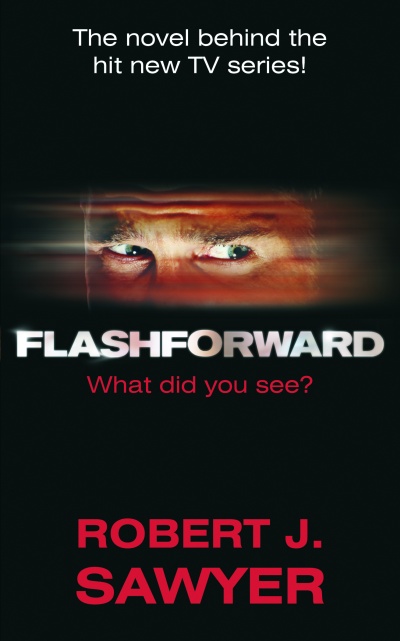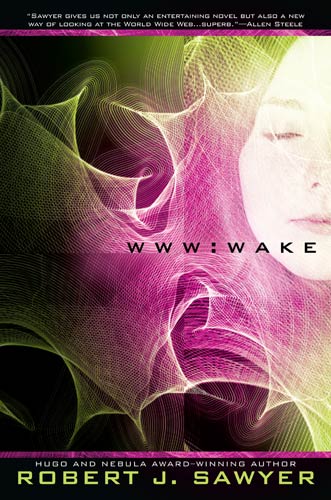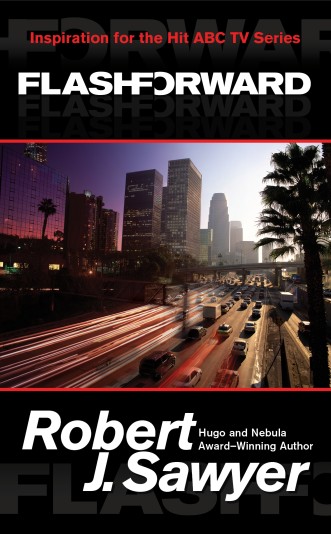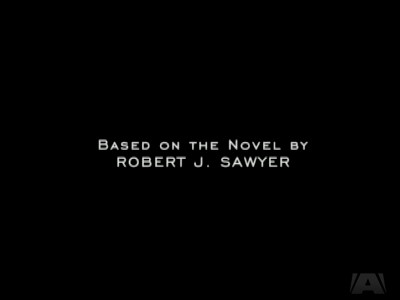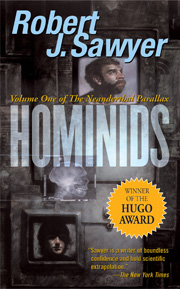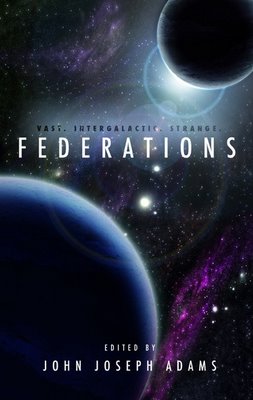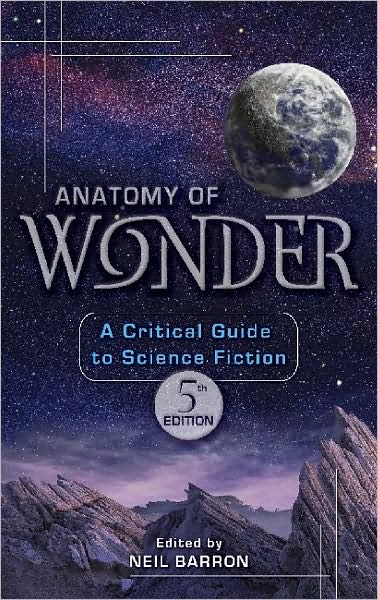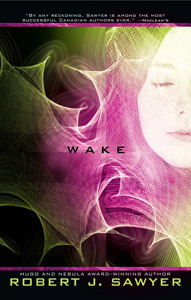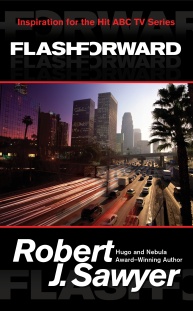Wake review roundup
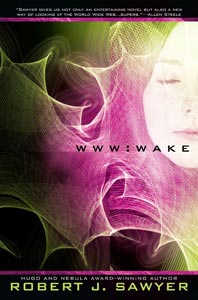
Since we're in the thick of Hugo, Nebula, and Aurora Award-nominating season, forgive me for this roundup of reviews of my 2009 novel Wake (published in the US by Ace as WWW: Wake).
"The thought-provoking first installment of Sawyer's WWW trilogy explores the origins and emergence of consciousness. The thematic diversity — and profundity — makes this one of Sawyer's strongest works to date." —Publishers Weekly (starred review, denoting a book of exceptional merit)
"Extremely well written and complex making Tron look like pre-school, this is a terrific first tale in what looks like will be a great trilogy." —Alternative-Worlds.com
"Wake was serialized in Analog recently; those who read it in these pages don't need me to tell them what a good book it is.
"For many years now, Robert J. Sawyer has been turning out imaginative, thought-provoking science fiction novels set in the present day and dealing with the impact of science and technology upon relatively ordinary people. A typical Sawyer tale brings together multiple diverse elements from popular culture, psychology, physics, and philosophy; stirs together plausible advances in science with appealing characters; adds some realistic depictions of actual scientists at work and a generous helping of old-fashioned sense-of-wonder; and filters the whole mix through a distinctly Canadian filter. Wake is no exception.
"Caitlin is an appealing enough character, and the premise is fascinating: a girl, blind from birth, gains the ability to see the structure of the Internet from within. A lesser writer would go with this story, following Caitlin as she learns to deal with this new, expanded world. But this is Sawyer, and there's much, much more going on.
"Along the way, Sawyer raises fascinating, complex questions about the nature of consciousness and self-awareness, of communication between disparate intelligences, and compassion across huge gulfs. This is a book that you'll still be thinking about for weeks after you finish reading it." —Analog Science Fiction and Fact
"Wake provides a refreshing intersect of science and real life, of consciousness and perception, of imagination and potential. Sawyer puts the science back in science fiction and does it with panache." —Bitten by Books
"Sawyer's take on theories about the origin of consciousness, generated within the framework of an engaging story, is fascinating, and his approach to machine consciousness and the Internet is surprisingly fresh." —Booklist
"A very entertaining read. Sawyer has written a pretty fast paced novel with Wake. Deceptively so in fact. Although it does not slow the story down he has packed the text with references to developments in information technology, mathematics, physics, linguistics and a number of other fields. Parts of the novel read like Oliver Sacks writing science fiction." —Bookspot Central
"While this is clearly a novel of big ideas, the author never neglects the individual characters. Caitlin, her parents, Dr. Kuroda, and even the kids at school all seem very realistic. Allowing us to follow Caitlin's story from her point of view works perfectly. She's a teenager, so she's moody and very human; but she's a very smart girl, applying knowledge to new situations and grasping abstract concepts with relative ease. She's a great character, with flaws and a sense of humor." —CA Reviews
"I shouldn't be shocked that Sawyer has done has homework and is able to predict things that could happen in the near future. He's had a long, distinguished career of doing just that and his new novels are always those I look forward to reading next. Wake is no exception.
"While the book is full of big ideas, those ideas are grounded in identifiable characters. The main focus of the story is Catlin and her journey from lack of sight to her new ability to see. Sawyer ably puts the reader inside the mind and experience of Catlin, making us see how she works within the world while being blind and how she must learn to adapt to a world where she can see. Catlin's story will have you feeling her joy, her frustration and her curious nature in how she relates to the world." —The Dragon Page
"I love the fact that Robert J. Sawyer is smarter than me. There is a breadth to his concepts and ideas in his latest novel,
Wake, that is exhilarating, if not exhausting. In the hands of a less skilled and less focused author, it would be like tab-surfing Wikipedia. Wake, however, is an engrossing, fascinating and, yes, challenging novel to read. Wake has more great and intriguing ideas, philosophies and concepts interwoven throughout the plot than should be allowed in a single novel.
"Wake is founded on theories that communication, in any form, is not just a way of sharing information, but is the central construct for all education, for true emancipation as well as the vehicle of all empathy and understanding. This is why Sawyer's Wake succeeds; his unabashed optimism and hope for a shared future that is no longer bound and tethered by tyranny, petty opportunism and fear." —FFWD, aka Fast Forward Weekly (Calgary, Alberta)
"Wake by Robert J. Sawyer is another delight from the pen of an author who knows how to romp through the kind of speculation which makes science fiction most fun. Definitely give this one a try." —Fort Morgan Times (Colorado)
"Robert J. Sawyer's books are for me among a select group. When there's a new Robert J. Sawyer book available, all other leisure activities go on hold until it's read. Robert J. Sawyer writes science fiction that makes you think. His books often tackle the philosophical questions of our time, and the philosophical questions we may need to confront at a future time.
"The main human character in [Wake] is Caitlin Decter. She's 15, a mathematics wizard, a frequent blogger on her LiveJournal — and a blind user of JAWS. It's rare to find novels where the main character is blind, let alone when where the research has clearly been so meticulous." — Jonathan Mosen, Vice-President of Blindness Hardware Product Management, Freedom Scientific [makers of JAWS]
"Wake often feels like a counterargument, both in style and content, to Neuromancer. One hopes that the next two volumes will step out of Gibson's long, dark shadow and build on the solid foundation laid in the first book. If Sawyer succeeds in this, the final nail will be hammered into Cyberpunk's coffin and the world will have a new way to write about the Internet. ... Wake is a major work by one of SF's heavyweights.
"Reading this book feels like watching a magic trick. Sawyer starts with a few pieces of string, shows you what's up his sleeves — nothing — and then starts tying them together. He steps back, gives the ropes a good yank and — Ta-Da — you have a tidy knot in the shape of a brain.
"The literati could very well be, to a person, too bloody stupid to see any of this. They seem to think that a tight plot construction and a clear prose style are inartistic. Sawyer gets a lot of well-deserved respect as a storyteller and as a science pundit but not enough as a prose stylist. It should not be overlooked that he is a science fiction writer. Sawyer attacks the novel from different points of view, using different styles and narrative tools; creates suspense while never employing an antagonist, tells history through a symbolic representation of consciousness and creates a character out of nothing. He does all of this so well and layers in so much page-turning, forward thrust, that the extent of his style is invisible." —The Grumpy Owl
"Robert J. Sawyer is widely considered one of the most inventive and popular writers in the science fiction genre, and here's why: he imagines things that are wildly fanciful, and he makes them seem not only plausible, but downright inevitable. Sawyer has a knack for taking realistic characters and plunking them down in stories that might seem far-fetched, if they weren't so vividly imagined and elegantly told. He's an excellent storyteller, and you catch him here at his very best." —Halifax Chronicle-Herald
"Sawyer continues to push the boundaries with his stories of the future made credible. His erudition, eclecticism, and masterly storytelling make this trilogy opener a choice selection." —Library Journal
"Wake is a marvelous story [with] a convincing narrative from the AI perspective. What I like best about this novel is Sawyer's casual dropping in of various bits of history that I know, and other bits of current fact that I haven't paid attention to. Eye openers on Chinese politics and insights into research into communicating with chimpanzees make this novel an eclectic reading SF fan's delight.
"Sawyer's SF story of an Artificial Intelligence dawning in the World Wide Web has the emotional impact of Buffy fighting demons from another dimension." —Jacqueline Lichtenberg in The Monthly Aspectarian
"Wake is about as good as it gets when it comes to science fiction. In Caitlin, Sawyer has created a likable and sympathetic hero. She's smart, sure, but also full of sass, which lends itself to some wildly entertaining reading. Sawyer's combination of writing skill and computing background come together marvelously in this book. The characters are rich and realistic, while the ideas are fresh and fascinating." —The Maine Edge, Bangor, Maine
"Unforgettable. Impossible to put down." —Nebula Award-winner Jack McDevitt
"When I am asked what my favourite science fiction novel is, invariably the answer is: `The last one by Robert Sawyer.' With the publication of Wake,
Rollback must sadly make way for the new title holder. Wake is, in the words of its heroine, made out of awesome." —McNally Robinson, Canada's second-largest bookstore chain
"Sawyer's treatment of the awakening of a consciousness from a man-made construct (in this case the web) coupled with the awe and wonder of a blind person's journey to sight is brilliant.
"Without revealing the ending, I have to say it had one. So many authors of multi-volume works don't bother tying up enough of the loose ends to keep the reader satisfied at the end of any but the last volume. When we have to wait at least a year for the next installment, I think the author owes us one. Sawyer came through with a most satisfying ending -- not even rushed.
Wake also ends with a perfect last line. But no peeking!" —MostlyFiction Book Reviews
"Sawyer is one of the most successful Canadian writers ever. He has won himself an international readership by reinvigorating the traditions of hard science fiction, following the path of such writers as Isaac Asimov and Robert A. Heinlein in his bold speculations from pure science. Clashes between personalities and ideologies fuel [Wake's] plot, but they're not what the book is about. It's about how cool science is.
"Sawyer has marshalled a daunting quantity of fact and theory from across scientific disciplines and applied them to a contemporary landscape — with due regard to cultural and political differences, pop culture, history, economics, adolescent yearnings, personal ambition and human frailty." —National Post
"Sawyer paints a complete portrait of a blind teenage girl, and imagines in detail — from scratch — the inside of a new being. Almost alone among Canadian writers, he tackles the most fundamental questions of who we are and where we might be going — while illuminating where we are now." —The Ottawa Citizen
"A superb work of day-after-tomorrow science fiction; I enjoyed every page." —Hugo Award-winner Allen Steele
"From an author who has written many books and has won just about every award a science fiction author can comes one of the most original and fascinating novels to be published in a long time. It's one of those books that has just as much right to be on a fiction shelf with other literature classics.
"Sawyer has done a fantastic job of researching the science, but also throws in lots of references that any savvy Internet user will recognize, appreciate, and be amused about; as well as putting the readers in the mind of a blind person and how they do the amazing things they do each day." —Sacramento Book Review
"Sawyer's fascination with the birth of consciousness and the relationship of consciousness to humanity makes this more than your typical `the machine is alive' story. Likewise, his compassionate writing lets us avoid the trap of assuming monstrosity in difference. As Caitlin and the consciousness of the Web learn to communicate, readers can easily begin to question what it is that makes us human — and whether or not that is enough to make us special, or just one variation among all consciousness, artificial or natural. Like all great science fiction, Sawyer's work ultimately stirs up philosophical questions, and Wake is no exception." —Sacramento News & Review
"A fast-paced and suspenseful story full of surprises and humour." —The Saskatoon StarPhoenix
"Wake is a gripping story with a novel premise and almost flawless execution." —Science Fiction and Fantasy Insider [Night Owl Reviews]
"Emotionally satisfying and intellectually stimulating. Along with William Gibson's Neuromancer and Neal Stephenson's
Snow Crash, Robert J. Sawyer's Wake presents a unique perspective on information technology. I eagerly await its sequels." —SFFaudio
"Sawyer is a brand name in the genre and rightfully so. The book [Wake] was very enjoyable; I highly recommend it!" —SFFWorld
"A brilliant look at interspecies communication with some remarkable insights into the future of artificial intelligence; one of Robert Sawyer's best efforts and one that will open your eyes to new possibilities. He's likely to score a hit with everyone from Gibson and Stephenson's crowd to science oriented YA readers of both genders looking for a summer read." —SFRevu
"I'm impressed. Sawyer's story-telling style is almost invisible to the reader; he doesn't get in the way of his own story, and writes short, punchy chapters that keep the reader saying `just one more.' (It's the type of book I love when I've finished, but hate while I'm reading, because I can't put it down.) His characters are fully realized, and I always finish his books wanting more." —SFScope
"Once again, Robert J. Sawyer explores the intersection between big ideas and real people. Here the subject is consciousness and perception — who we are and how we see one another, both literally and figuratively. Thoughtful and engaging, and a great beginning to a fascinating trilogy." —Hugo Award-winner Robert Charles Wilson
"Now, the idea of a digital intelligence forming online is not a new one, by any means. But I daresay most of the people tackling such a concept automatically assumed, as I always did, that such a being would not only have access to the shared data of the Internet, but the conceptual groundings needed to understand it. And that's where Robert J. Sawyer turns this into such a fascinating, satisfying piece. In a deliberate parallel to the story of Helen Keller, he tackles the need for building a common base of understanding, before unleashing an education creation upon the Web's vast storehouse of knowledge.
"More than that, Sawyer is an author who's not afraid to make his readers think. The topics invoked in this book cover a wide range, from math to theories of intelligence, from what it's like to be blind, to cutting edge technology. He incorporates the myriad resources available online, including Livejournal, Wikipedia, Google, Project Gutenberg, WordNet, and perhaps the most interesting site of all, Cyc, a real site aimed at codifying knowledge so that anyone, including emerging artificial intelligences, might understand. He ties in Internet topography and offbeat musicians, primate signing and Chinese hackers, and creates a wholly believable set of circumstances spinning out of a world we can as good as reach out to touch. There's quite a lot to consider, and Sawyer's good at making it accessible to the average reader.
"Sawyer has delivered another excellent tale." —SF Site
"It's refreshing to read a book so deliberately Canadian in a genre dominated by Americans, and it's easy to see why Sawyer now routinely wins not only Canadian science fiction prizes but also international accolades. His fans won't be disappointed, and readers picking up his work for the first time will get a good introduction to a writer with a remarkable backlist." —Winnipeg Free Press
Robert J. Sawyer online:
Website • Facebook • Twitter • Newsgroup • Email
